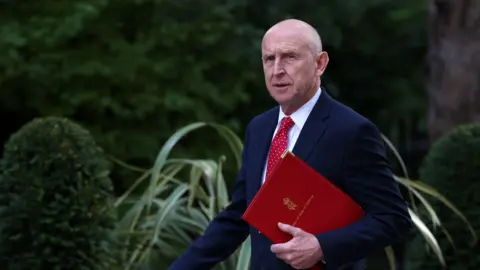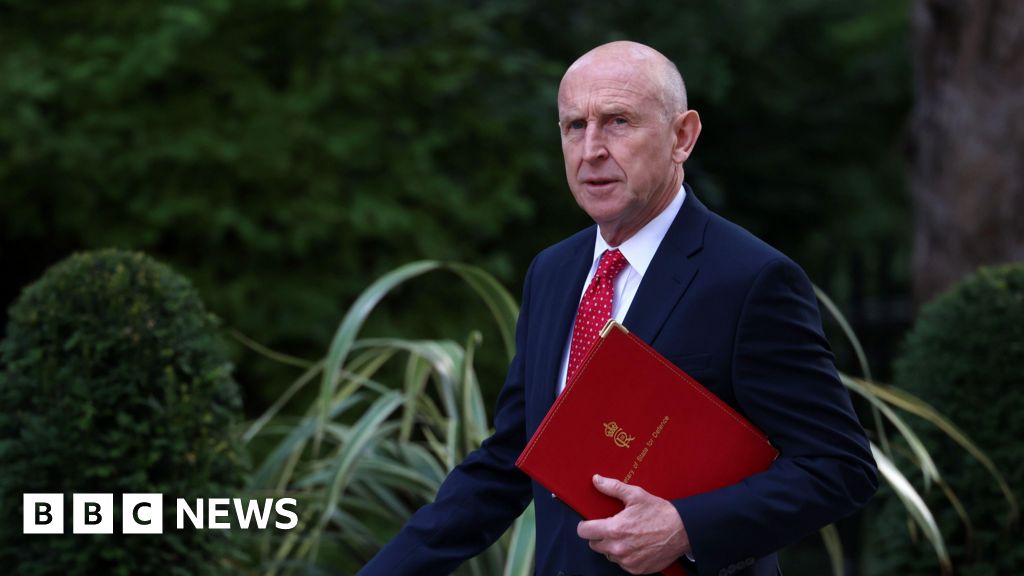 EPA
EPAThe defence secretary has said he was “unable to say for sure” whether anyone had been killed as a result of a data breach that revealed the details of thousands of Afghans who had supported British forces.
But John Healey told the BBC it was “highly unlikely” being a name on the list alone would now increase the risk of being targeted by the Taliban.
Details of nearly 19,000 people who had applied to move to the UK after the Taliban seized power in Afghanistan were mistakenly leaked in February 2022 by a British official. The previous government learned of this in August 2023 when details were posted on Facebook.
A super-injunction blocking reporting about the leak was lifted on Tuesday.
Healey told the BBC the lifting of the super-injunction would now allow “proper press reporting and scrutiny”.
“You cannot have democracy with super-injunctions in place,” he said.
Sir Ben Wallace, who was defence secretary for the Conservative government, said it had applied for a four-month injunction after it became aware of the breach, which a judge converted to a super-injunction.
He told BBC Radio 4’s Today programme his priority had been to “protect those people who could have been or were exposed”.
The resettlement scheme – the Afghanistan Response Route – set up in April 2024 for those on the leaked list has seen 4,500 Afghans come to the UK and a total of 6,900 are expected. The scheme’s closure was announced on Tuesday, when the super-injunction was lifted.
The scheme has cost £400m, with a projected final cost of about £850m.
Speaking in the Commons on Tuesday, Healey said the person involved in the leak was “no longer doing the same job”, and offered a “sincere apology”.
Downing Street has not said whether the official responsible for the leak has faced disciplinary action.
Conservative leader Kemi Badenoch has also apologised on behalf of her party.
Former Conservative leader Sir Iain Duncan Smith said Parliament should have been informed about the leak.
He told the BBC’s World Tonight: “Parliament cannot be ignored for that length of time, we owe a duty to the public to at least have examined this.”
The daughter of an Afghan translator whose details were leaked told the BBC’s Newsnight programme that her whole family “panicked”.
“No one knows where the data has been sent to – it could be sent to the Taliban, they could have their hands on it,” she said.
Her grandmother, who is still in Afghanistan, is “completely vulnerable”, she added.


